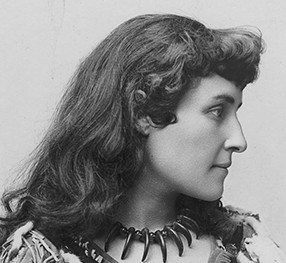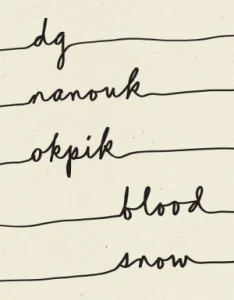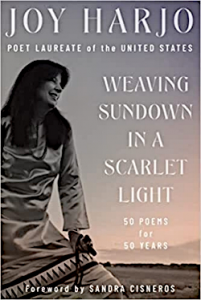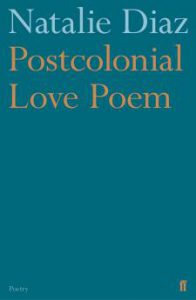Fleurs du Mal Magazine


Or see the index

A Cry from an Indian Wife
My Forest Brave, my Red-skin love, farewell;
We may not meet to-morrow; who can tell
What mighty ills befall our little band,
Or what you’ll suffer from the white man’s hand?
Here is your knife! I thought ’twas sheathed for aye.
No roaming bison calls for it to-day;
No hide of prairie cattle will it maim;
The plains are bare, it seeks a nobler game:
’Twill drink the life-blood of a soldier host.
Go; rise and strike, no matter what the cost.
Yet stay. Revolt not at the Union Jack,
Nor raise Thy hand against this stripling pack
Of white-faced warriors, marching West to quell
Our fallen tribe that rises to rebel.
They all are young and beautiful and good;
Curse to the war that drinks their harmless blood.
Curse to the fate that brought them from the East
To be our chiefs—to make our nation least
That breathes the air of this vast continent.
Still their new rule and council is well meant.
They but forget we Indians owned the land
From ocean unto ocean; that they stand
Upon a soil that centuries agone
Was our sole kingdom and our right alone.
They never think how they would feel to-day,
If some great nation came from far away,
Wresting their country from their hapless braves,
Giving what they gave us—but wars and graves.
Then go and strike for liberty and life,
And bring back honour to your Indian wife.
Your wife? Ah, what of that, who cares for me?
Who pities my poor love and agony?
What white-robed priest prays for your safety here,
As prayer is said for every volunteer
That swells the ranks that Canada sends out?
Who prays for vict’ry for the Indian scout?
Who prays for our poor nation lying low?
None—therefore take your tomahawk and go.
My heart may break and burn into its core,
But I am strong to bid you go to war.
Yet stay, my heart is not the only one
That grieves the loss of husband and of son;
Think of the mothers o’er the inland seas;
Think of the pale-faced maiden on her knees;
One pleads her God to guard some sweet-faced child
That marches on toward the North-West wild.
The other prays to shield her love from harm,
To strengthen his young, proud uplifted arm.
Ah, how her white face quivers thus to think,
Your tomahawk his life’s best blood will drink.
She never thinks of my wild aching breast,
Nor prays for your dark face and eagle crest
Endangered by a thousand rifle balls,
My heart the target if my warrior falls.
O! coward self I hesitate no more;
Go forth, and win the glories of the war.
Go forth, nor bend to greed of white men’s hands,
By right, by birth we Indians own these lands,
Though starved, crushed, plundered, lies our nation low . . .
Perhaps the white man’s God has willed it so.
Emily Pauline Johnson
(1861 – 1913)
A Cry from an Indian Wife
Poem
• fleursdumal.nl magazine
More in: # Classic Poetry Archive, *Archive Native American Literature, Archive I-J, Archive I-J, Emily Pauline Johnson, Racism

Song of the American Indian
Stranger, stay, nor wish to climb
The heights of yonder hills sublime;
For there strange shapes and spirits dwell,
That oft the murmuring thunders swell,
Of power from the impending steep
To hurl thee headlong to the deep;
But secure with us abide,
By the winding river’s side;
Our gladsome toil, our pleasures share,
And think not of a world of care.
The lonely cayman, where he feeds
Among the green high-bending reeds,
Shall yield thee pastime; thy keen dart
Through his bright scales shall pierce his heart.
Home returning from our toils,
Thou shalt bear the tiger’s spoils;
And we will sing our loudest strain
O’er the forest-tyrant slain!
Sometimes thou shalt pause to hear
The beauteous cardinal sing clear;
Where hoary oaks, by time decayed,
Nod in the deep wood’s pathless glade;
And the sun, with bursting ray,
Quivers on the branches gray.
By the river’s craggy banks,
O’erhung with stately cypress-ranks,
Where the bush-bee hums his song,
Thy trim canoe shall glance along.
To-night at least, in this retreat,
Stranger! rest thy wandering feet;
To-morrow, with unerring bow,
To the deep thickets fearless we will go.
William Lisle Bowles
(1762 – 1850)
Song of the American Indian
• fleursdumal.nl magazine
More in: # Classic Poetry Archive, #Archive Native American Library, Archive A-B, Archive A-B, Cowboys and Indians, Racism, Western Fiction
Finalist for the 2023 Pulitzer Prize Listed in The Boston Globe’s Best Poetry Books of 2022.
Longlisted for the PEN/Voelcker Award in PoetryAmerican Book Award-winning poet dg okpik’s second collection of poems, Blood Snow, tells a continuum story of a homeland under erasure, in an ethos of erosion, in a multitude of encroaching methane, ice floe, and rising temperatures.
 Here, in a true Inupiaq voice, dg okpik’s relationship to language is an access point for understanding larger kinships between animals, peoples, traditions, histories, ancestries, and identities.
Here, in a true Inupiaq voice, dg okpik’s relationship to language is an access point for understanding larger kinships between animals, peoples, traditions, histories, ancestries, and identities.
Through an animist process of transfiguration into a Shaman’s omniscient voice, we are greeted with a destabilizing grammar of selfhood. Okpik’s poems have a fraught relationship to her former home in Anchorage, Alaska, a place of unparalleled natural beauty and a traumatic site of devastation for Alaskan native nations and landscapes alike. In this way, okpik’s poetry speaks to the dualistic nature of reality and how one’s existence in the world simultaneously shapes and is shaped by its environs.
dg nanouk okpik was born and spent much of her life in Anchorage, Alaska. She graduated from Salish Kootenai College with an AFA in Liberal Arts and Liberal Studies, and later attended the Institute of American Indian Arts, graduating with an AFA and a BFA in Creative Writing before receiving her MFA in Creative Writing from Stonecoast College. okpik has won the Truman Capote Literary Award, the May Sarton Award, and an American Book Award for her first book, Corpse Whale (University of Arizona Press, 2012).
Blood Snow
by Dg Nanouk Okpik
Publisher: Wave Books
Publish Date: October 18, 2022
Pages 96
Language: English
Paperback
EAN/UPC: 9781950268634
BISAC Categories:
Native American
Women Authors
Price $18.00
• fleursdumal.nl magazine
More in: #Archive Native American Library, #Editors Choice Archiv, #Modern Poetry Archive, - Book News, - Bookstores, Archive O-P, Archive O-P
Weaving Sundown in a Scarlet Light
Fifty Poems for Fifty Years
A magnificent selection of fifty poems to celebrate three-term US Poet Laureate Joy Harjo’s fifty years as a poet.
 In this gemlike volume, Harjo selects her best poems from across fifty years, beginning with her early discoveries of her own voice and ending with moving reflections on our contemporary moment.
In this gemlike volume, Harjo selects her best poems from across fifty years, beginning with her early discoveries of her own voice and ending with moving reflections on our contemporary moment.
Weaving Sundown in a Scarlet Light traces every occasion of a lifetime; it offers poems on birth, death, love, and resistance; on motherhood and on losing a parent; on fresh beginnings amidst legacies of displacement.
Generous notes on each poem offer insight into Harjo’s inimitable poetics as she takes inspiration from sunrise and horse songs and jazz, reckons with home and loss, and listens to the natural messengers of the earth.
Joy Harjo is a member of the Muscogee (Creek) Nation. She is the author of nine poetry collections and two memoirs, most recently Poet Warrior. The recipient of the 2023 Ivan Sandrof Lifetime Achievement Award, the 2023 Bollingen Prize for American Poetry, and the 2017 Ruth Lilly Poetry Prize, she lives in Tulsa, Oklahoma.
Weaving Sundown in a Scarlet Light:
Fifty Poems for Fifty Years
by Joy Harjo (Author),
Sandra Cisneros (Foreword)
November 1, 2022
Publisher: W. W. Norton & Company
Language: English
Hardcover: 160 pages
ISBN-10: 1324036486
ISBN-13: 978-1324036487
$21.49
• fleursdumal.nl magazine
More in: #Archive Native American Library, #Editors Choice Archiv, - Book News, - Bookstores, Archive G-H, Archive G-H
Here, the bodies of indigenous, Latinx, black and brown women are simultaneously the body politic and the body ecstatic, and portrayed with a glowing intimacy: the alphabet of a hand in the dark, the hips’ silvered percussion, a thigh’s red-gold geometry, the emerald tigers that leap in a throat.
 Natalie Diaz was born and raised in the Fort Mojave Indian Village in Needles, California, on the banks of the Colorado River. She is Mojave and an enrolled member of the Gila River Indian Tribe.
Natalie Diaz was born and raised in the Fort Mojave Indian Village in Needles, California, on the banks of the Colorado River. She is Mojave and an enrolled member of the Gila River Indian Tribe.
Her first poetry collection, When My Brother Was an Aztec, won an American Book Award. She is a 2018 MacArthur Fellow, as well as a Lannan Literary Fellow and a Native Arts and Cultures Foundation Artist Fellow.
She was awarded the Holmes National Poetry Prize and a Hodder Fellowship from Princeton University. She is a member of the Board of Trustees for the United States Artists, where she is an alumna of the Ford Fellowship. Diaz is the Maxine and Jonathan Marshall Chair in Modern and Contemporary Poetry at Arizona State University.
Postcolonial Love Poem
Natalie Diaz
Paperback
128 pages
Publisher: Faber & Faber
Published: 16/07/2020
Language: English
ISBN-10: 0571359868
ISBN-13: 978-0571359868
£10.99
# new poetry
Postcolonial Love Poem
by Natalie Diaz
• fleursdumal.nl magazine
More in: #Archive Native American Library, #Editors Choice Archiv, - Book News, Archive C-D, Archive C-D
Thank you for reading Fleurs du Mal - magazine for art & literature